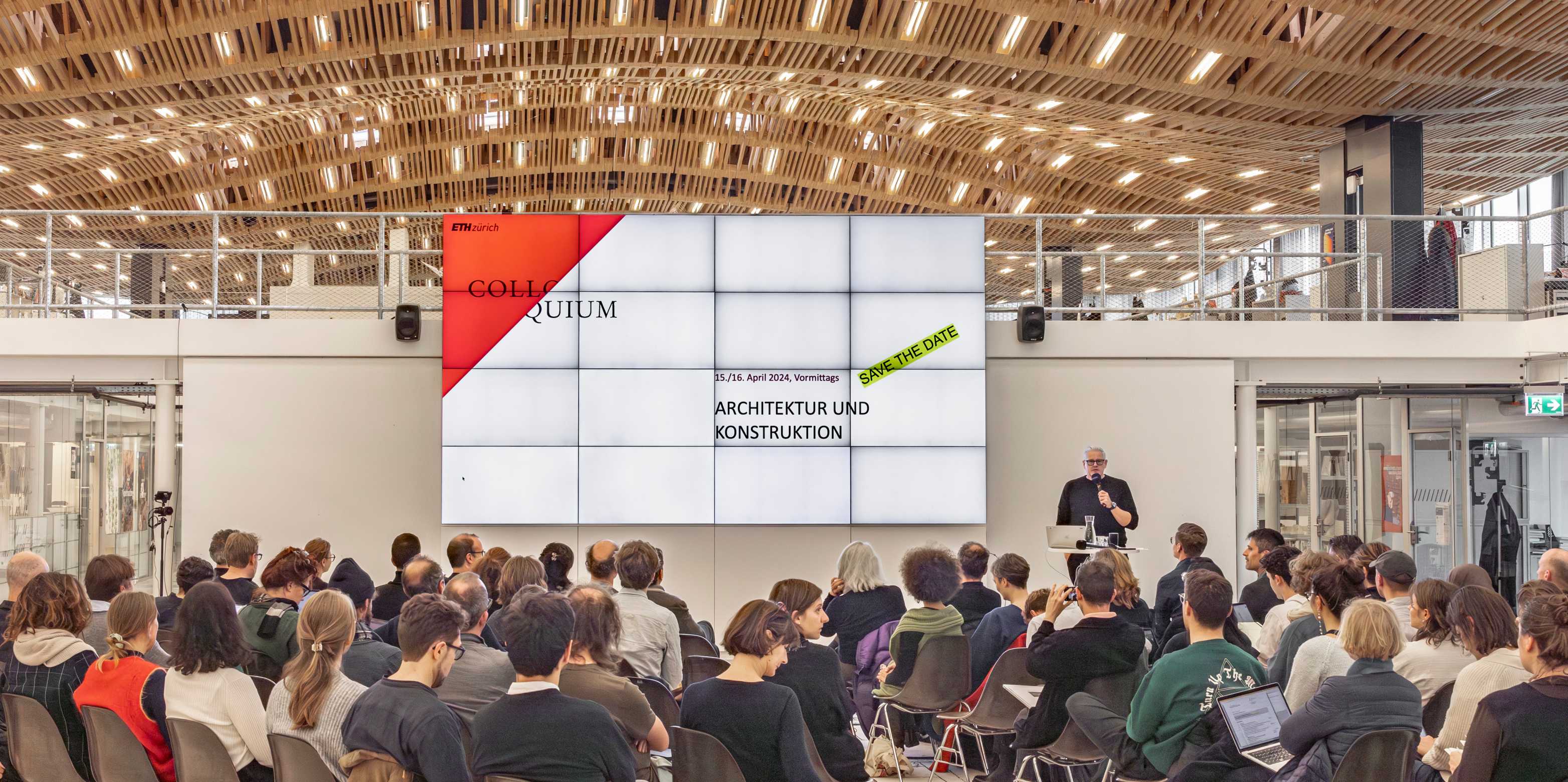“Antisemitism is not tolerated”
Newspaper articles accuse the Department of Architecture of fomenting antisemitism. Dean Matthias Kohler comments on the allegations on behalf of the department board.

An architecture professor from Stuttgart makes serious allegations against the Department of Architecture in a Swiss newspaper. What is your reaction?
Of course, I understand that the reporting has caused a lot of irritation and uncertainty, which we at the department board very much regret. However, the newspaper article claims that the department is a hotspot for antisemitism. As a department, we clearly distance ourselves from such an attribution. The conflict in Israel/Palestine is of great concern to our community and leads to situations in which criticism of Israel is expressed. But criticism cannot be equated with antisemitism. It is also important to us to emphasize: There were no complaints to the responsible reporting office. Antisemitism, like any form of discrimination, is not tolerated, as ETH explicitly states in its statement on the current conflict. The same applies to the Department of Architecture.
Does the debate about Israel and Palestine even belong in an architecture department?
Yes. As a university with an international focus, ETH also deals with global issues of spatial planning and urban development. Architecture is always politically relevant. That's why discussing such complex topics is part of our mission. The issue of Israel/Palestine in particular is about spatial and social issues at the city level that are closely linked to political realities. This discourse is of course not easy and we must conduct it sensitively.
It is also alleged that research is being carried out at the department with an anti-Israel bias. What do you say to this accusation?
The gta Institute has written an internal statement that describes the context. The institute states that the claims are not true and the quotes were taken out of context. The dissertation of gta visiting professor Samia Henni, which is in the focus, is scientifically sound and was even awarded an ETH medal. By the way, here research deals with the French colonial period in Algeria and is not directly linked to the Israel-Palestine conflict. We do not accept that Samia Henni's doctorate is defamed in this way.
The impression is that the mood in the department is one-sidedly pro-Palestinian and not balanced enough. How do you see that? Is the discourse on the topic one-sided in the department?
As everywhere in society, there are differing opinions on Palestine/Israel in our department. We find it difficult that the discussion was shaped by a few but loud voices. Sometimes the empathy towards the Israeli victims was lacking, which we judge critically. This led to the discussion being perceived as not being balanced enough. A broad discourse in the department is important to us. We want to make professors as well as mid-level staff and student groups more responsible for this. At the same time, the research freedom of professorships and bottom-up student movements are central.
People who work in the department or were invited published statements on social media or signed letters that were provocative. For you, is there a limit to freedom of research and freedom of expression?
ETH is not responsible for statements made in private. However, if these violate the law or are reported to the department as discriminatory, the board speaks to the people and takes the necessary steps. In fact, the question of boundaries arises at the event planned by students with the author and architect Léopold Lambert. Here we are conducting intensive discussions internally as to whether and if so in what form we can hold and be responsible for this event. The debate should be as balanced and broad as possible, including on charged political topics. However, justifying or inciting violence or racism are not legitimate positions at ETH.
The mood is heated. How is the department dealing with the situation? Where do you see the greatest need for action?
The situation is very difficult for everyone indirectly or directly affected. We have great compassion for everyone affected by the conflict, whether they feel connected to people in Israel or Palestine. The department supports and helps wherever possible. The department is also currently setting up a Care & Complaint office that people who feel unwell can contact directly. We the professors will continue to actively cultivate the culture of discussion together with the mid-level staff and students and assume our responsibility in academic discourse.